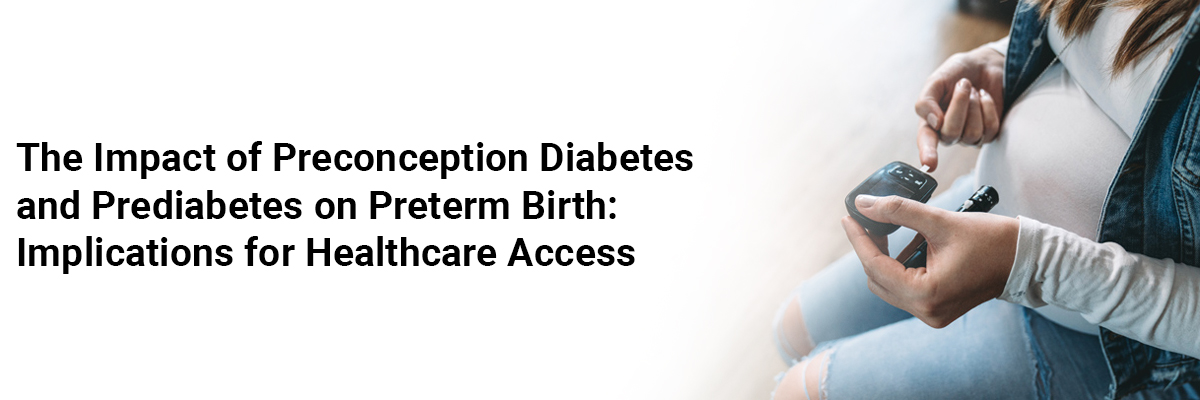
 IJCP Editorial Team
IJCP Editorial Team
The Impact of Preconception Diabetes and Prediabetes on Preterm Birth: Implications for Healthcare Access
Preconception diabetes has long been recognized as a significant risk
factor for adverse birth outcomes. However, there is still a limited
understanding of the effects of elevated glycemia levels below the clinical
cutoffs for diabetes. A recent study by Erin Delker et al. examined the
associations between preconception diabetes, prediabetes, and hemoglobin A1c
(HbA1c) levels with the risk of preterm birth. Additionally, the study aimed to
evaluate whether access to or utilization of healthcare services influenced
these associations.
Using data from Add Health, a US prospective cohort study, Delker et al.
analyzed information collected from women at different stages of their
reproductive journey. Glucose and HbA1c levels were measured during Wave IV
(ages 24-32), while reports of preterm birth were obtained during Wave V (ages
32-42). The study included a sample size of 1989 women, among whom 13%
experienced preterm birth.
The findings revealed that prior to pregnancy, 6.9% of women had
diabetes, 23.7% had prediabetes, and 69.4% were normoglycemic. Compared to the
normoglycemic group, women with diabetes had a 2.1-fold increased risk of
preterm birth, while women with prediabetes had a 1.3-fold increased risk.
Interestingly, the relationship between HbA1c levels and preterm birth
demonstrated a nonlinear pattern, with the risk emerging after reaching an
HbA1c of 5.7%, which is considered the standard cutoff for prediabetes.
Furthermore, the study found that the excess risks of preterm birth associated
with elevated HbA1c were four to five times larger among women with unstable
healthcare coverage or who relied on the emergency room as their usual source
of care.
These findings replicate previous research, underscoring the strong
associations between preconception diabetes and preterm birth. Importantly,
this study adds to the growing body of evidence by highlighting the increased
risk of preterm birth associated with prediabetes. Efforts should be made to
enhance healthcare access, ensuring that women have access to regular prenatal
care, diabetes screening, and appropriate interventions to manage glycemic
levels. Furthermore, interventions should focus on providing comprehensive
preconception care, including education and support for women with prediabetes,
to mitigate the risk of adverse birth outcomes.
By prioritizing healthcare access and offering appropriate interventions, we can strive towards healthier pregnancies and better outcomes for both mothers and their babies.
Delker E, Ramos GA, Bandoli G, et al. Associations Between Preconception
Glycemia and Preterm Birth: The Potential Role of Health Care Access and
Utilization. Journal of Women's Health. 2023;32(3):274-282.
https://www.liebertpub.com/doi/abs/10.1089/jwh.2022.0256

IJCP Editorial Team
Comprising seasoned professionals and experts from the medical field, the IJCP editorial team is dedicated to delivering timely and accurate content and thriving to provide attention-grabbing information for the readers. What sets them apart are their diverse expertise, spanning academia, research, and clinical practice, and their dedication to upholding the highest standards of quality and integrity. With a wealth of experience and a commitment to excellence, the IJCP editorial team strives to provide valuable perspectives, the latest trends, and in-depth analyses across various medical domains, all in a way that keeps you interested and engaged.






















Please login to comment on this article